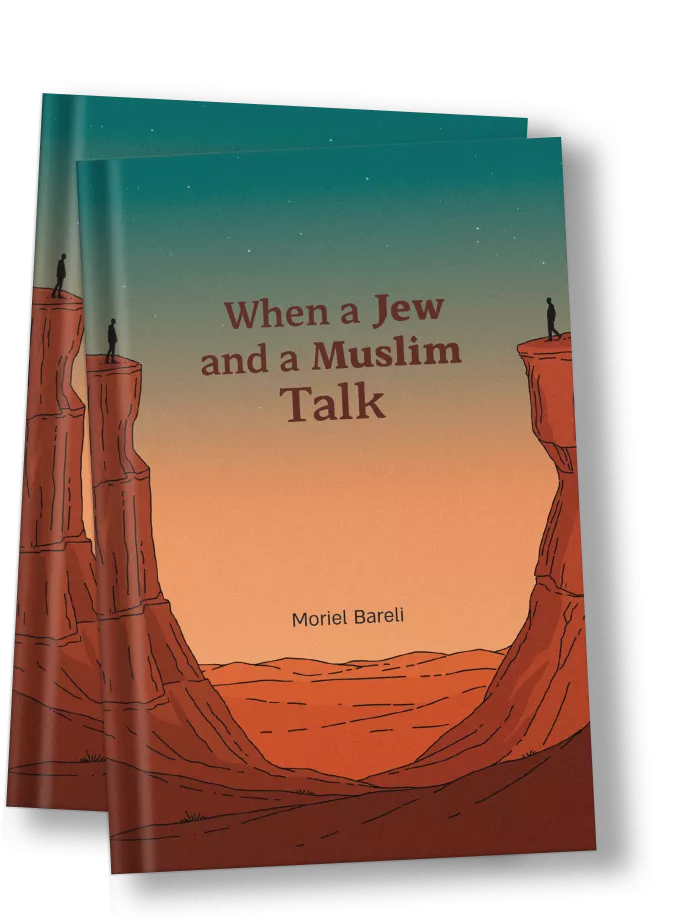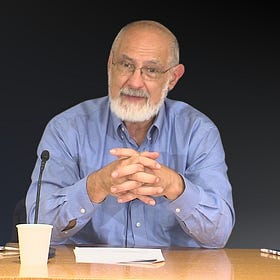Because life is life-size, academic discourses, let alone grand worldviews, can only ever be approximations. Yet, direct observation and engagement with a specific situation raises the most complex and, at the same time, the most diverse questions. From this point of view, the experience the young Moriel Bareli recounts in his book When a Jew and a Muslim Talk is of such a dense and unusual nature. Yet his starting point was relatively simple: a young man growing up on Long Island, New York, who came to Israel when he turned eighteen. And since he lived near Jerusalem's Old City, inhabited mainly by Israeli Muslims, he developed a desire to learn Arabic – and in this way, to approach and become closer with his neighbor—the unknown being, as Rilke had named him. In practice, however, this wasn't quite so easy to accomplish because, at the time of the so-called Knife Intifada, Jewish students were only allowed to enter the Old City if accompanied by guards. So, as a digital native, Bareli downloaded an app and arranged to learn the language through various online conversations. Because he soon realized revealing his identity as a Jewish Israeli wouldn’t help him achieve his goal, he decided to focus on his New York background, presenting himself as an American college student who taught English in exchange for Arabic classes. And it was in this way that he was able to strike up conversations with all kinds of people in the Arab world—conversations that would have been impossible in everyday life. This experience, with its unmistakable anthropological significance, drew our attention to him – leading to the following conversation, which, despite the subject's dark and confrontational nature, was characterized by a wonderful sense of humor.
Moriel Bareli lives in Samaria, teaches Arabic and gives lectures on the Israeli-Palestinian conflict.
Recently published
Related Content
Im Gespräch mit ... Michael Wolffsohn
Michael Wolffsohn ist ein unendlich geduldiger, höflicher Mensch – weswegen es ihm gar nicht schwer fällt, seinen eilends in Gedankensprüngen vorpreschenden Gesprächspartner freundlich darin zu erinnern, dass er, Wolffsohn, nur ein „Barfußphilosoph“ sei. Was aber, in Anbetracht jenes großen Projekts, das er sich mit seiner anderen jüdis…
Talking to ... Richard Landes
It may well be at some point beyond the immediate horror of October 7th that it will be seen as the bursting of a major intellectual bubble’s moral economy equivalent to the financial crash of 2008. And while Hamas’ breach of civilization may have caught many contemporaries off guard, this wasn’t the case for Richard Landes, who’d warned u…



















Share this post